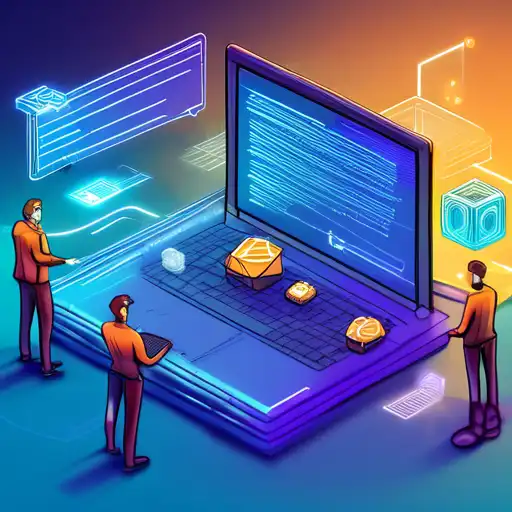Introduction to Smart Contracts
Smart contracts are self-executing contracts with the terms of the agreement between buyer and seller being directly written into lines of code. The code and the agreements contained therein exist across a distributed, decentralized blockchain network. Smart contracts permit trusted transactions and agreements to be carried out among disparate, anonymous parties without the need for a central authority, legal system, or external enforcement mechanism.
How Do Smart Contracts Work?
At their core, smart contracts work by following simple 'if/when...then...' statements that are written into code on a blockchain. A network of computers executes the actions when predetermined conditions have been met and verified. These actions could include releasing funds to the appropriate parties, registering a vehicle, sending notifications, or issuing a ticket. The blockchain is then updated when the transaction is completed. That means the transaction cannot be changed, and only parties who have been granted permission can see the results.
Benefits of Smart Contracts
Smart contracts offer numerous benefits over traditional contract law and manual processes. Here are some of the key advantages:
- Autonomy: You're the one making the agreement; there's no need to rely on a broker, lawyer, or other intermediaries to confirm.
- Trust: Your documents are encrypted on a shared ledger. There's no way that someone can say they lost it.
- Backup: Imagine if your bank lost your savings account. On the blockchain, each and every one of your friends has your back. Your documents are duplicated many times over.
- Safety: Cryptography, the encryption of websites, keeps your documents safe. There is no hacking.
- Speed: You'd ordinarily have to spend chunks of time and paperwork to manually process documents. Smart contracts use software code to automate tasks, thereby shaving hours off a range of business processes.
- Savings: Smart contracts save you money since they knock out the presence of an intermediary. You would, for instance, have to pay a notary to witness your transaction.
Challenges and Limitations
Despite their potential, smart contracts are not without challenges. The technology is still in its infancy, and there are issues related to scalability, security, and legal recognition that need to be addressed. Moreover, the immutable nature of blockchain means that any errors in the contract code can be costly and difficult to rectify.
Future of Smart Contracts
The future of smart contracts is promising, with potential applications ranging from financial services to healthcare, real estate, and beyond. As blockchain technology continues to evolve, we can expect smart contracts to become more sophisticated, secure, and widely adopted.
For more insights into blockchain technology, check out our Blockchain Basics guide.
